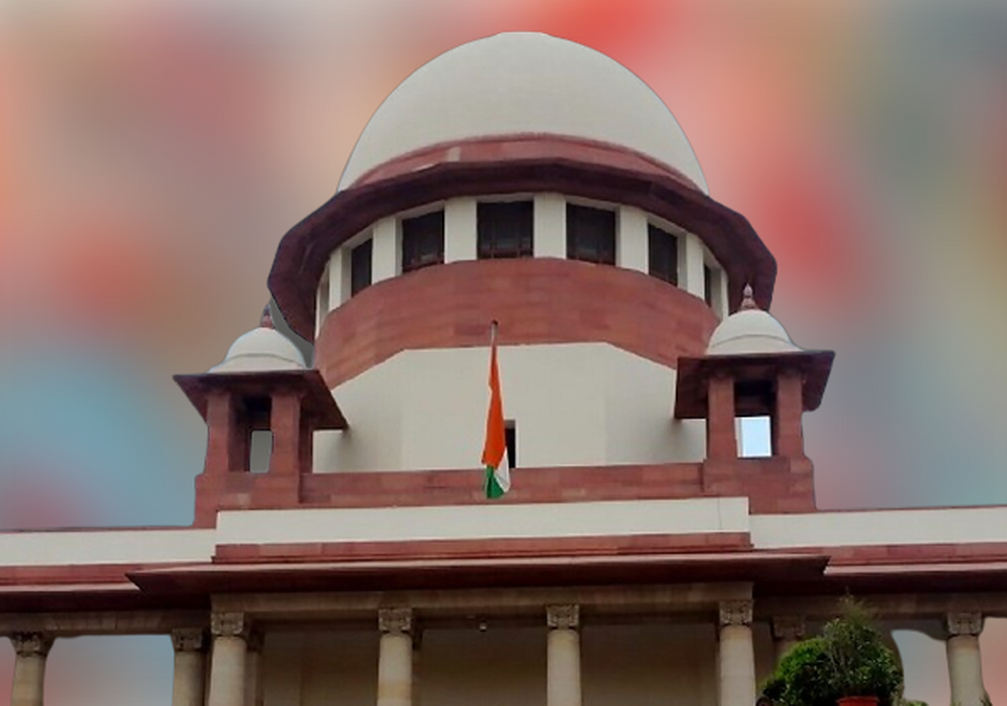Claims for loss of estate can be pursued by legal representatives of deceased: SC while deciding compensation in 20-yr-old accident case

Read Judgement: The Oriental Insurance Company Limited vs. Kahlon @ Jasmail Singh Kahlon
Pankaj Bajpai
New Delhi, August 18, 2021: The Supreme Court has ruled that while the claim for personal injuries may not survive after death of the injured — unrelated to the accident or injuries — during the pendency of the appeal, but the claims for loss of estate caused was available to and could be pursued by legal representatives of the deceased in the appeal.
Going by the consistent judicial view taken by various High Courts, a Division Bench of Justice Navin Sinha and Justice R. Subhash Reddy observed that loss of estate would include expenditure on medicines, treatment, diet, attendant, Doctor’s fee, etc. including income and future prospects which would have caused reasonable accretion to the estate but for the sudden expenditure which had to be met from and depleted the estate of the injured, subsequently deceased.
These observations came pursuant to a claim arising out of injuries caused in a motor accident that has reached its fruition more than 20 years later before the Apex Court, which the Bench found extremely distressing.
The original claimant had filed a claim for compensation u/s 166(1)(a) of the Motor Vehicles Act, 1988 after being severely injured in a motor accident. Later, the Motor Accidents Claims Tribunal (MACT) awarded him a sum of Rs.1,00,000/- only with 9% interest.
Dissatisfied, the original claimant preferred an appeal before the High Court, but he was deceased during the pendency of the appeal. His death was not attributed to the injuries suffered in the accident. The daughter of the claimant was then substituted in the appeal, where the High Court substantially enhanced the compensation to Rs.37,81,234/ by taking into account annual salary with future prospects applying the multiplier of 11 including pain and suffering, and attendant’s charges.
The Division Bench found that the disability certificate issued to the original claimant by the Government Hospital, Cuddalore opined 100% permanent motor system disability which showed that he was unable to lift all four limbs which were vested with sensory loss present in certain places classified as quadriplegic orthopedically.
Justice Sinha reiterated that the Motor Vehicles Act is a beneficial and welfare legislation and Section 166(1) (a) of the Act provides for a statutory claim for compensation arising out of an accident by the person who has sustained the injury.
The Bench said that if the legal heirs can pursue claims in case of death, there is no reason why the legal representatives cannot pursue claims for loss of property akin to estate of the injured if he is deceased subsequently for reasons other than attributable to the accident or injuries under Clause 1(c) of Section 166 of the Act.
Justice Sinha further noted that the injuries suffered by the deceased in the accident required prolonged hospitalization for six months, whereas the extent of disability, pursuant to physiotherapy was reassessed as 75%.
“The injured was possessing professional qualifications in labour laws and Industrial relations along with a Diploma in Personnel Management. He may have had to suffer some handicap in also practicing before the labour court, but cannot be held to have suffered 100% physical disability as his capacity for rendering advisory and other work coupled with movement on a wheel chair with the aid of an attendant could still facilitate a reduced earning capacity. It cannot be held that the injured was completely left with no source of livelihood except to deplete his estate”, observed Justice Sinha.
The Bench added that all factors including possibilities have to be kept in mind while assessing what has been described as a ‘Just Compensation’ under the Act.
Therefore, the Apex Court reassessed the total compensation at Rs.28,42,175/- while disallowing the compensation under the head pain and suffering being personal injuries.
Sign up for our weekly newsletter to stay up to date on our product, events featured blog, special offer and all of the exciting things that take place here at Legitquest.




Add a Comment